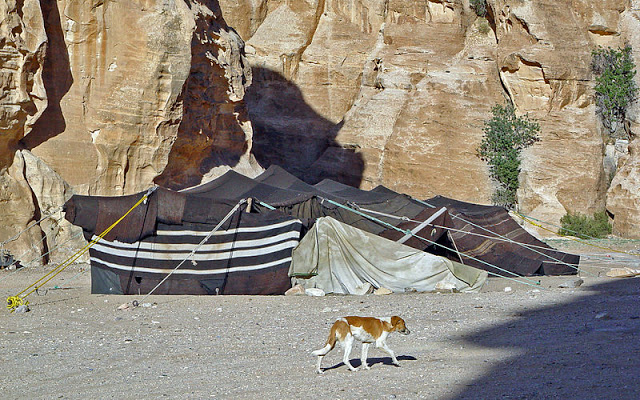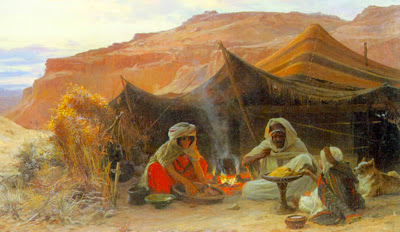This was my son’s favorite scripture when he was about 5 years old — “And my father dwelt in a tent.” He gave quite a talk about that verse in Primary. People came up to me afterwards, amazed by his little discourse.
In the Book of Mormon, as Nephi recounts his life, he shares stories of his family’s move from their home in Jerusalem to their nomadic lifestyle in a tent. He talks about it often. I counted 22 times in that first book of Nephi where he mentions this tent-living. Lehi left his property, his inheritance, his gold and his silver and his precious things and took only his family, some provisions and those tents. I have thought about that — that tent living. And their willingness to do it. Even though Laman and Lemuel complained (and Sariah at one time too) — they all left their home and gold.
To an Arab, “My father dwelt in a tent” says everything. “The present inhabitants of Palestine,” writes Canaan, “like their forefathers, are of two classes: dwellers in villages and cities, and the Bedouin. As the life and habits of the one class differ from the those of the other, so do their houses differ. Houses in villages are built of durable material; . . . on the other hand, Bedouin dwellings, tents, are more fitted for nomadic life.”So with the announcement that his “father dwelt in a tent,” Nephi serves notice that he had assumed the desert way of life, as perforce he must for his journey. Any easterner would appreciate the significance and importance of the statement, which to us seems almost trivial. (Hugh Nibley, Lehi in the Desert)
…he pitched his tent in a valley by the side of a river of water.
…we did pitch our tents again
…as he dwelt in a tent,
…we did take our tents and depart into the wilderness
…And all these things, of which I have spoken, were done as my father dwelt in a tent,
…we did pitch our tents again;


